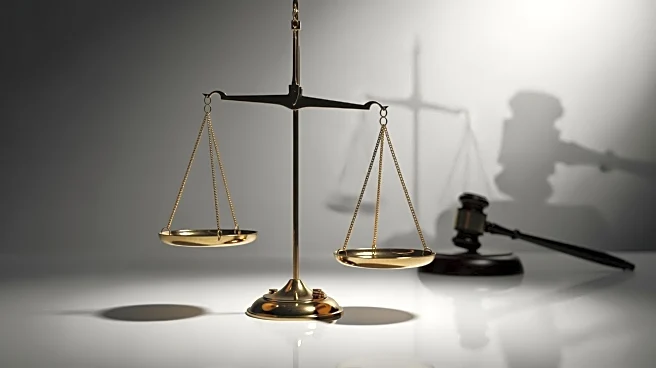What's Happening?
Erez Reuveni, a former DOJ attorney, has publicly accused the Department of Justice of engaging in lawless practices during deportation proceedings. Reuveni claims he was dismissed for refusing to falsely
label Kilmar Abrego Garcia as a terrorist and MS-13 member. His allegations focus on Emil Bove, a senior DOJ official, who purportedly insisted on deportations despite court orders, using explicit language to convey the administration's disregard for judicial authority. Reuveni's testimony suggests a pattern of misleading courts and violating ethical standards within the DOJ, particularly under the Trump administration.
Why It's Important?
Reuveni's allegations highlight potential systemic issues within the DOJ, raising concerns about the integrity of legal processes and the protection of individual rights. If substantiated, these claims could erode public trust in the DOJ and the broader legal system, impacting how immigration policies are enforced and perceived. The case underscores the tension between executive power and judicial oversight, with implications for the balance of power and accountability within government institutions. The revelations could prompt calls for reform and increased scrutiny of DOJ practices.
What's Next?
The whistleblower complaint filed by Reuveni may lead to further investigations into the DOJ's conduct during the Trump administration. Legal experts and civil rights advocates might push for accountability and reforms to ensure adherence to due process and ethical standards. The case could influence ongoing debates about immigration policy and executive authority, potentially leading to legislative or judicial responses to prevent similar occurrences in the future.
Beyond the Headlines
The ethical implications of this case highlight the importance of legal integrity and the role of whistleblowers in maintaining transparency within government institutions. Reuveni's actions reflect the challenges faced by individuals who choose to speak out against perceived injustices, often at great personal risk. This situation also prompts a broader discussion on the protection of whistleblowers and the mechanisms in place to support them in exposing wrongdoing.











